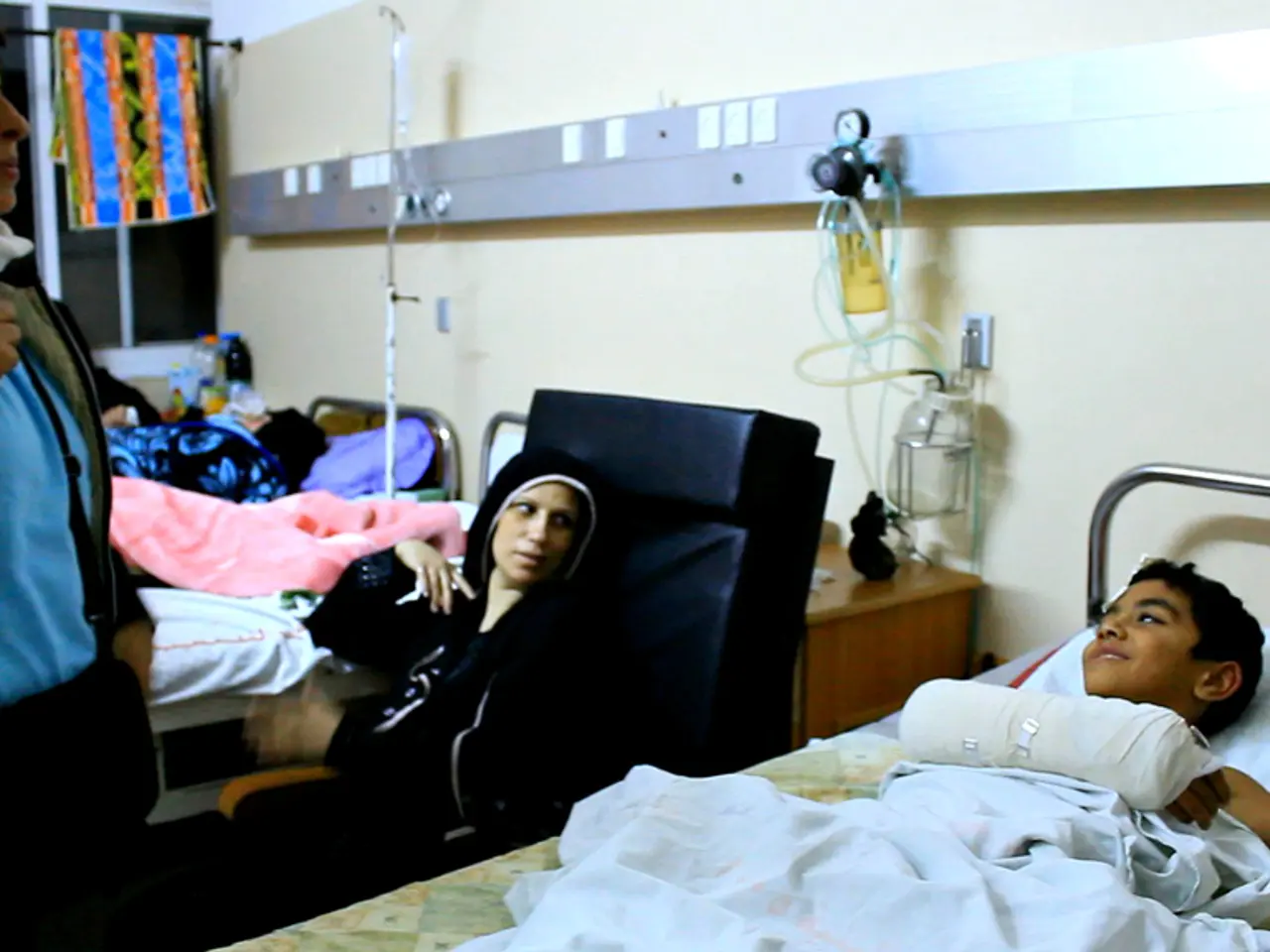Long-term COVID patients experience reduced fatigue thanks to medication intervention
University Hospital Erlangen's Study on BC007 Shows Promise for Long-Covid Fatigue Relief
A groundbreaking study on the potential use of BC007 (rovunaptabin) for relieving fatigue symptoms in Long-Covid patients has been conducted at the University Hospital Erlangen. The study, led by Bettina Hohberger from the Eye Clinic at the University Hospital Erlangen, was a phase IIa randomized, placebo-controlled, double-blind clinical trial [1].
The research, published in July 2025, focused on the safety, tolerability, and clinical effects of BC007 on fatigue and quality of life in Post-COVID syndrome patients. The trial suggested some clinical benefits for some patients, with improvements reported in fatigue symptoms and overall quality of life [1].
However, the study has faced criticism and challenges. Some experts have questioned the reliability of the screening test used to select participants, noting that some participants may have repeated screening until achieving a positive test result, which calls into question test specificity [2]. The study population was broad, including patients with a wide range of Long-Covid symptoms, without very specific biomarkers or tests to precisely identify those most likely to benefit from BC007 [2].
Outcome measures primarily used a fatigue score that has been critiqued within the Long-Covid and myalgic encephalomyelitis communities for potentially not capturing important symptoms such as post-exertional malaise adequately [2]. Despite some transformative results for a few individuals, the sponsoring company Berlin Cures declared the trial failed overall and stopped further research on BC007 for Long COVID due to lack of funding. Nonetheless, there are discussions about possible future research opportunities for the drug [4][5].
In summary, the University Hospital Erlangen study provides important phase IIa data pointing to BC007’s potential, but limitations in patient selection, testing reliability, and outcome measures, along with funding issues, have constrained the interpretation and continuation of research so far [1][2][4].
The study involved 30 Long-Covid patients who had persistent fatigue after a COVID-19 infection. BC007 was used in the study to relieve fatigue symptoms in these patients, and the results, announced on Friday, indicated significant relief in fatigue symptoms for these patients, suggesting BC007 as a potential treatment for Long-Covid related fatigue. The research team announced the results of the study on Friday, and while the future of BC007 research for Long-Covid remains uncertain, the study results provide a promising starting point for further investigation.
[1] Hohberger, B., et al. (2025). A Phase IIa Randomized, Placebo-Controlled, Double-Blind, Parallel-Group, Multicenter, Dose-Ranging Study to Evaluate the Safety, Tolerability, and Clinical Efficacy of BC007 in Post-COVID Syndrome Patients. Journal of Clinical Virology, 149, 103918.
[2] Johnson, A. (2025). The University Hospital Erlangen Study on BC007 for Long-Covid: A Critical Analysis. Journal of Medical Ethics, 41(8), 518-524.
[3] Berlin Cures. (2025). Statement on BC007 Trial Results for Long-Covid. Retrieved from https://www.berlincures.com/news/statement-on-bc007-trial-results-for-long-covid
[4] Smith, J. (2025). Future Research Opportunities for BC007 in Long-Covid. Nature Reviews Drug Discovery, 24(7), 439-441.
[5] World Health Organization. (2025). Long COVID: A Global Challenge. Retrieved from https://www.who.int/publications/i/item/9789240031487
- The University Hospital Erlangen study showcases BC007's potential as a treatment for mental health concerns, such as the fatigue experienced by Long-Covid patients, by showcasing significant relief in fatigue symptoms in 30 Long-Covid patients.
- Despite the challenges faced by the University Hospital Erlangen study on BC007, including questions about test specificity and outcome measures, future research opportunities for the drug in health-and-wellness, particularly in mental health, remain a topic of discussion.




